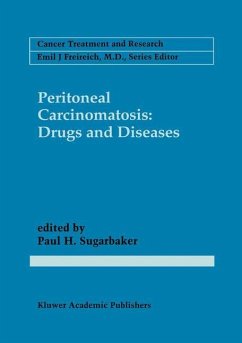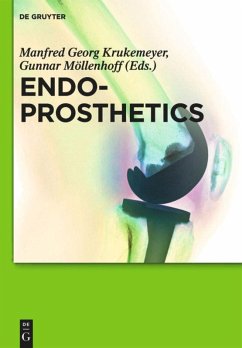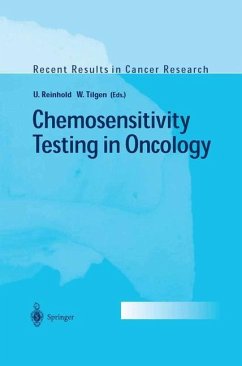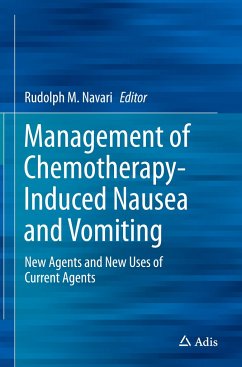
Peritoneal Carcinomatosis: A Multidisciplinary Approach

PAYBACK Punkte
76 °P sammeln!
Recent developments in regional and systemic anticancer therapies have improved the grim outlook of patients with peritoneal carcinomatosis (PC) from ovarian or gastrointestinal origin, leading to a renewed interest in both the underlying mechanisms at the origin of PC and the various therapeutic options.This is the first volume to provide a multidisciplinary approach to peritoneal carcinomatosis encompassing molecular mechanisms, histopathology, regional and systemic cytotoxic therapy, and surgical options. Peritoneal Carcinomatosis: A Multidisciplinary Approach will be of interest for medica...
Recent developments in regional and systemic anticancer therapies have improved the grim outlook of patients with peritoneal carcinomatosis (PC) from ovarian or gastrointestinal origin, leading to a renewed interest in both the underlying mechanisms at the origin of PC and the various therapeutic options.
This is the first volume to provide a multidisciplinary approach to peritoneal carcinomatosis encompassing molecular mechanisms, histopathology, regional and systemic cytotoxic therapy, and surgical options. Peritoneal Carcinomatosis: A Multidisciplinary Approach will be of interest for medical, surgical and gynecological oncologists faced with the complexities of decision making in patients suffering from PC, as well as for basic and translational scientists active in the field of locoregional cancer spread. Numerous illustrations aid the reader throughout in the many facets of this disease.
This is the first volume to provide a multidisciplinary approach to peritoneal carcinomatosis encompassing molecular mechanisms, histopathology, regional and systemic cytotoxic therapy, and surgical options. Peritoneal Carcinomatosis: A Multidisciplinary Approach will be of interest for medical, surgical and gynecological oncologists faced with the complexities of decision making in patients suffering from PC, as well as for basic and translational scientists active in the field of locoregional cancer spread. Numerous illustrations aid the reader throughout in the many facets of this disease.














